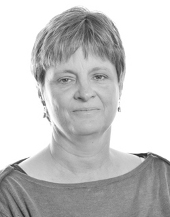 post by JENNIFER SPRATT
post by JENNIFER SPRATT
School of Education, University of Aberdeen
The legacy left by the IQ test is an assumption that human intelligence is an innate and immutable personal attribute, that is normally distributed throughout the population (on a bell-shaped curve). This can be seen to have far reaching effects on the organisation of education as children are categorised according to whether they are thought to be ‘high ability’, ‘low ability’ or perhaps deemed to have ‘special educational needs’. The presumption that we can make judgements about future ‘potential’ on the evidence of current performance continues to legitimate practices of providing different educational experiences for children according to their perceived ability. Yet, as Meg Maguire describes in her blog we have known for several decades that the social effect of ability labelling is to reproduce inequalities by undermining the sense of sense of self-worth in some groups of pupils and placing ceilings on what they, and their teachers, believe can be achieved (e.g. Ball 1981).
Contemporary work examining the psychological basis of intelligence, has rejected the notion of ability as a fixed, quantifiable entity, based on skills of logic, but instead refers to ‘new kinds of smart’ involving a broad range of flexible skills, which are fostered by attitudes of curiosity, resourcefulness, reflectiveness, determination and sociability (Lucas & Claxton, 2010). These attributes are clearly not fixed, but can be affected by the experiences that children have in school. Similarly, Hart et al (2004) describe how children’s capacity to learn is transformable; that it can be changed for the better in the right conditions. They describe how inclusive teachers remove limits on expectations of pupils by providing opportunities for all children to learn within a classroom community that does not make judgments about ability. This accords with the perspective held by Booth and Ainscow who maintain that ‘Inclusion is about increasing participation for all children and adults. It is about supporting schools to become more responsive to the diversity of children’s backgrounds, interests, experience, knowledge and skills‘.
By studying what teachers committed to inclusion actually do, Florian and Black Hawkins developed the concept of ‘inclusive pedagogy’. This approach to teaching and learning allows teachers to support all learners whilst avoiding unintended consequences of marking out some children as different. In a subtle, but important, change in focus teachers work creatively with others to extend the options available to everybody, rather than offering one set of options to ‘most’ children with something additional or different for ‘some’. This work is based on a set of theoretical principles, which have been introduced into the Professional Graduate Diploma in Education at the University of Aberdeen, and a study of new teachers has shown how these principles can be enacted in practice.
The points raised in this short piece have clear policy implications.
Firstly, as pointed out by Brahm Norwich in his earlier blog, contemporary UK policy is leading to a reduction in (or possibly a denial of) participation in mainstream schooling by children deemed to have special education needs. This may limit the opportunities for many children and young people who are already disadvantaged.
Secondly, as the pupil population is becoming increasingly diverse, schools and teachers should be encouraged to examine the impact of categorising children within their own context, and to develop practices which widen the opportunities for all pupils to participate in the life and learning of the community.
Thirdly, teacher education is increasingly being fragmented as it takes new forms, many of which reduce the input from universities, depending more heavily on school-based experiences. If the theoretical input to initial teacher education is reduced, how can new teachers learn to critique the assumptions about learning that pervade education, and what opportunity do they have to inform their practice with theoretical ideas such as inclusive pedagogy?

Reblogged this on Apprenticeship, Skills & Employability..